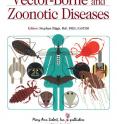Does recent isolation of Zika virus from Culex mosquitoes point to a new transmission source?
Researchers have identified Zika virus in mosquito species other than Aedes aegypti, which is largely responsible for the current outbreaks of Zika infection, raising concerns that different mosquito vectors may be capable of transmitting the virus. However, a new study demonstrates that even after feeding high levels of Zika virus, Culex species mosquitoes remain refractory to infection and therefore highly unlikely to transmit the infection to humans as supported by evidence published in Vector-Borne and Zoonotic Diseases, a peer-reviewed journal from Mary Ann Liebert, Inc., publishers. The article is available free on the Vector-Borne and Zoonotic Diseases website until October 7, 2016. Entitled "Culex Species Mosquitoes and Zika Virus," the report demonstrates that the most widespread and abundant Culex species in the United States are very resistant to Zika virus infection even when exposed to high levels in a bloodmeal. In a timely finding with important implications for Florida and other emerging areas of Zika virus infection, Yan-Jang Huang, Dana Vanlandingham and co-authors from the College of Veterinary Medicine and Biosecurity Research Institute, Kansas State University (Manhattan, KS), Rutgers University (New Brunswick, NJ), Mercer County Mosquito Control (Trenton, NJ), University of Florida (Vero Beach, FL), and Agriculture Research Service, United States Department of Agriculture (Manhattan, KS), showed that Culex quinquefasciatus, for example, a mosquito species from Vero Beach, FL, is refractory to infection with Zika virus. The information presented helps to target appropriate mosquito control. Non-target species such as bees can be affected without that focus.
The authors recommend that mosquito control efforts in areas of Florida with non-travel-related cases of infection should continue to focus on Aedes species.
A subsequent Brazilian study (Guedes DRD et al., biorxiv 2016, unpublished preprint) has shown the capacity for Brazilian Culex quinquefasciatus to be infected and to transmit Zika virus.
University of Aix-Marseille visiting Professor Ernest Gould commented, "Prior to its totally unexpected emergence, dispersion and subsequent association with microcephaly, Guillain Barré syndrome, materno-fetal, sexual, and post-transfusion transmission, Zika virus was a relatively neglected arbovirus with less than 20 recorded human infections globally. However, it is currently one of the most reported (in the media) arboviruses of all time. The emergence of Zika virus in this form has truly shocked the world. Moreover, since Zika virus is an arbovirus that no longer relies upon the natural sylvatic jungle reservoir, one of the many burning questions is, has it evolved the ability to exploit mosquito vectors such as Culex species (the vectors of West Nile virus) in order to increase this amazing epidemiological success. The paper by Vanlandingham's group describes laboratory experiments to assess the transmission competence of Culex species and provides strong evidence to support the view that Culex species mosquitoes are highly unlikely to be important vectors of Zika virus. This report provides very helpful guidance for health agencies charged with the responsibility of controlling local mosquito populations in regions of North America where Zika virus presents a potential threat."
Source: Mary Ann Liebert, Inc./Genetic Engineering News
Articles on the same topic
- Probing a mosquito protein for clues in the fight against ZikaWed, 7 Sep 2016, 19:43:08 UTC
Other sources
- Probing a Mosquito Protein for Clues in the Fight Against Zikafrom Newswise - ScinewsThu, 8 Sep 2016, 14:31:25 UTC
- Probing a mosquito protein for clues in the fight against Zikafrom Science DailyWed, 7 Sep 2016, 19:31:50 UTC
- Probing a mosquito protein for clues in the fight against Zikafrom PhysorgWed, 7 Sep 2016, 17:01:35 UTC
- Enlisting youth citizen scientists to combat Zika by collecting mosquito eggsfrom PhysorgMon, 5 Sep 2016, 11:31:27 UTC
